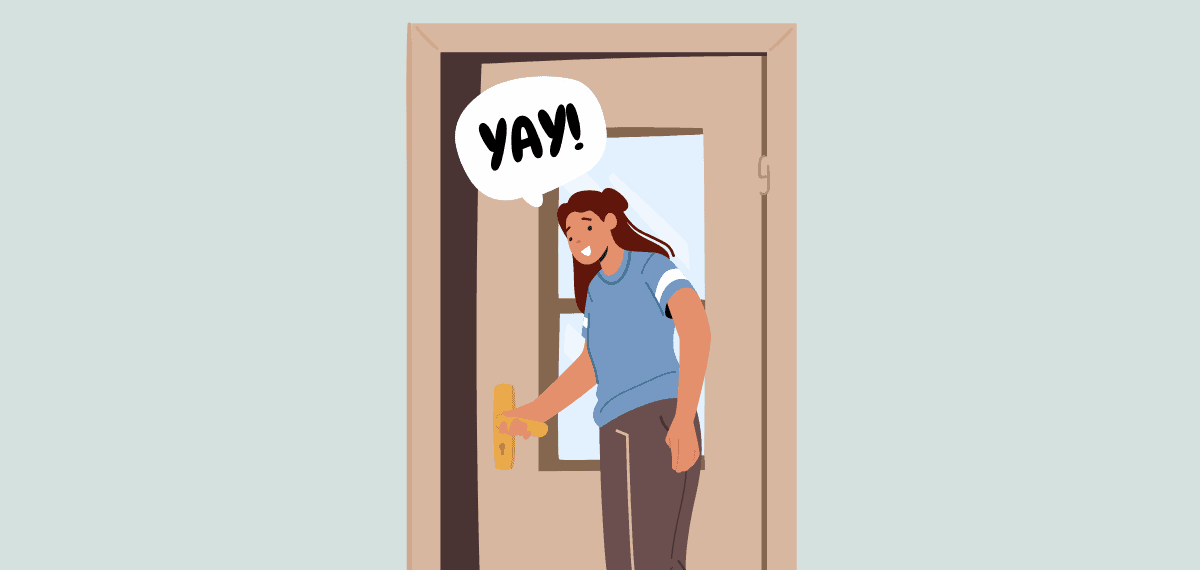The phrase "good riddance" is often used in a variety of contexts, conveying a sense of relief or dismissal towards people or situations that are no longer desired. This expression encapsulates an emotional release, as it signifies the act of letting go of something that was burdensome or troublesome. In today's fast-paced world, where relationships and experiences can be fleeting, understanding the "good riddance meaning" allows individuals to articulate their feelings of liberation effectively.
When we say "good riddance," it is often accompanied by a sense of finality and closure. Whether it's a toxic relationship, a stressful job, or a challenging situation, uttering this phrase can be both cathartic and empowering. It serves as a reminder that moving on is not just acceptable, but often necessary for personal growth and well-being. In this way, the "good riddance meaning" transcends mere words; it becomes a mantra for resilience and self-empowerment.
Understanding the nuances behind this phrase can enrich our vocabulary and communication skills. It can also help us navigate our emotions and express ourselves more clearly when faced with the complexities of life. As we delve deeper into the various aspects of "good riddance meaning," we will explore its origins, usage, and its significance in both everyday conversations and more profound life experiences.
What is the Origin of the Phrase "Good Riddance"?
The phrase "good riddance" has its roots in the English language, dating back to the 16th century. It is derived from the word "riddance," which refers to the act of getting rid of something undesirable. The overall sentiment of the phrase suggests a feeling of joy or satisfaction at being free from unwanted burdens. The phrase gained popularity as society began to embrace the idea of personal freedom and self-determination, allowing individuals to express their relief when letting go of negative influences.
How is "Good Riddance" Used in Everyday Conversation?
In everyday conversation, the phrase "good riddance" is often employed in informal settings. People might use it to describe various situations, such as:
- Ending a difficult relationship.
- Leaving a job that was unfulfilling.
- Moving away from a toxic environment.
- Parting ways with friends or acquaintances who bring negativity.
By using this phrase, individuals can convey their feelings of relief and closure, often accompanied by a sense of empowerment and optimism for the future.
What Are Some Common Phrases Similar to "Good Riddance"?
There are several phrases that convey similar sentiments to "good riddance." Some of these include:
- "Out with the old, in with the new."
- "Time to move on."
- "Letting go."
- "Turning a new leaf."
These expressions highlight the importance of moving forward and embracing change in one's life.
Can "Good Riddance" Have a Positive or Negative Connotation?
While "good riddance" is primarily used to express relief, its connotation can vary depending on the context. In some cases, it may carry a positive tone, reflecting joy and optimism about new beginnings. Conversely, it can also have a negative undertone, especially if it is used in a dismissive or harsh manner. Understanding the emotional context behind the phrase is essential for effective communication.
Why Do People Use "Good Riddance" in Relationships?
In the realm of relationships, "good riddance" often serves as a way for individuals to reclaim their autonomy and prioritize their emotional well-being. When someone decides to end a toxic relationship, for instance, saying "good riddance" can symbolize a liberating moment of realization that the relationship was not serving their best interests. This phrase becomes a tool for empowerment, allowing individuals to move on without looking back.
Are There Notable Instances of "Good Riddance" in Pop Culture?
Yes, the phrase "good riddance" has made its way into various forms of pop culture, including music and literature. One of the most notable examples is the song "Good Riddance (Time of Your Life)" by Green Day, which reflects on the bittersweet nature of moving on while cherishing memories. This song, often played at graduations and farewells, encapsulates the essence of the phrase by recognizing both the joy of new beginnings and the sadness of endings.
How to Embrace the "Good Riddance Meaning" in Your Life?
Embracing the "good riddance meaning" in your life can be a transformative experience. Here are some steps to help you incorporate this mindset:
- Identify Toxic Influences: Reflect on your life and identify people or situations that drain your energy.
- Set Boundaries: Learn to say no and create boundaries that protect your emotional well-being.
- Practice Gratitude: Focus on the positive aspects of your life and express gratitude for the lessons learned.
- Move Forward: Embrace change and look forward to new opportunities that align with your values and goals.
What Are the Benefits of Letting Go and Saying "Good Riddance"?
Letting go and embracing the "good riddance meaning" can bring numerous benefits, such as:
- Improved mental health and emotional well-being.
- Increased self-awareness and personal growth.
- Enhanced relationships with positive influences.
- Greater resilience in facing future challenges.
Conclusion: Embrace the Power of "Good Riddance"
The phrase "good riddance" serves as a powerful reminder that letting go is not only acceptable but often necessary for personal growth and happiness. By understanding the "good riddance meaning," we can better express our emotions and navigate the complexities of life. As you move forward, remember that every ending opens the door to new beginnings, and sometimes, saying "good riddance" is the first step towards a brighter future.
Unveiling The Mystery Of The Flying Dutchman In N Out
Unveiling The Secrets Of Sharks: Do Sharks Have Bones?
Unveiling The Life Of Honey Boo Boo's Mom: A Journey Through Fame And Family

